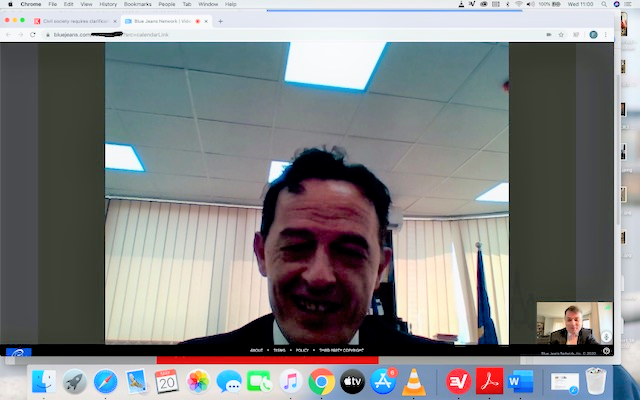On 20 May, the Head of the Council of Europe Office in Pristina, Mr. Frank Power, met with Mr. Hilmi Jashari, Ombudsperson of Kosovo* to discuss matters of mutual interest. Mr. Power commended Mr. Jashari on the expertise and positive reputation of the Ombudsperson Institution of Kosovo, and thanked Mr. Jashari and his staff for the very constructive cooperation to date with the Council of Europe. Mr. Power and Mr. Jashari discussed emerging human rights trends in Europe, the role of National Human Rights Institutions and the importance of the European Convention on Human Rights, including its particular relevance in the judicial system of Kosovo*. They also discussed cooperation under previous and ongoing Council of Europe projects, in particular through the European Union/Council of Europe joint programme "Horizontal Facility for the Western Balkans and Turkey 2019-2022' action 'Promotion of diversity and equality in Kosovo', where the Ombudsperson Institution of Kosovo is a key partner, especially in ad dressing the phenomenon of hate speech.
"All reference to Kosovo, whether the territory, institutions or population, in this text shall be understood in full compliance with United Nation’s Security Council Resolution 1244 and without prejudice to the status of Kosovo."




